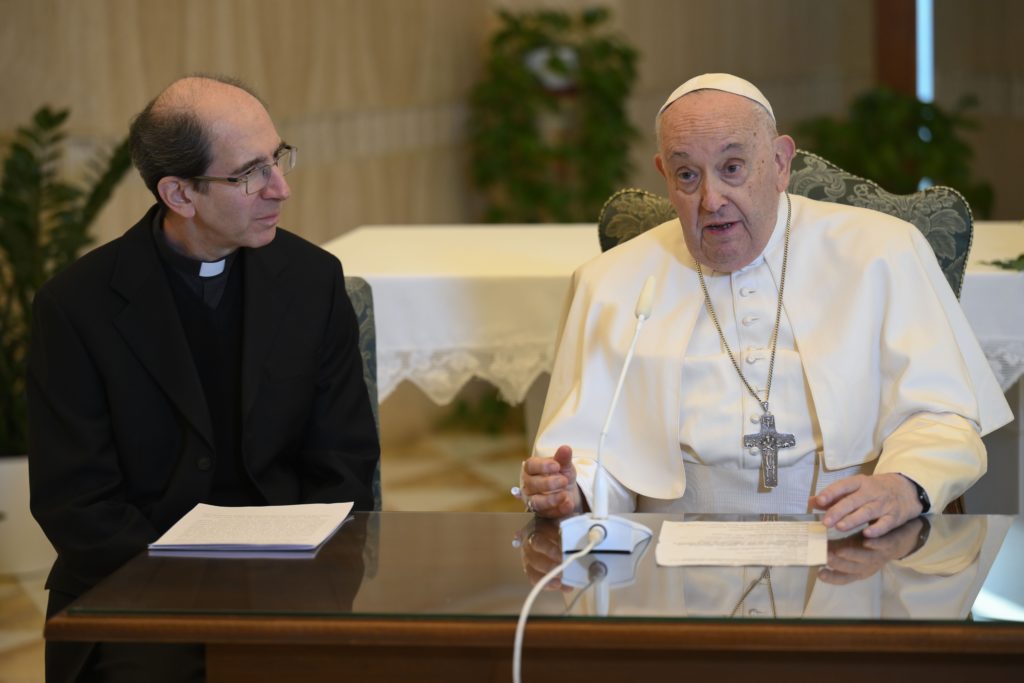ROME — In many ways, Pope Francis sailed through the demanding holiday season with flying colors. Despite a series of health scares throughout 2023, and despite, at 87, now being the oldest reigning pontiff in 120 years, he seemed remarkably strong, engaged and in command, even delivering a 45-minute speech to diplomats Jan. 8 with gusto.
In a recent interview, Francis confirmed plans to travel to Belgium this year and dangled the prospect of additional outings to Polynesia and his native Argentina, and of late he’s been taking planning meetings for the Great Jubilee of 2025 — none of which necessarily suggests a pope who’s winding down.
Yet, of course, time and the tides stop for no one.
Inevitably, in 2024 the combination of age and health will impose increasing restraints on the pontiff, perhaps limiting his mobility and energy and forcing him increasingly to focus on the essentials. More and more, that reality will mean that much routine administration of the Vatican and the papacy will be handled by people around the pope, acting in his name and with his approval.
Some of the people called upon to carry an increasing share of the load are already well-known figures, others personalities whose profile seems destined to rise.
Herewith, then, a brief guide to figures on the Vatican scene likely to become steadily more visible and consequential.
Msgr. Paolo Luca Braida
Originally from Lodi in northern Italy, the 59-year-old Braida enjoyed a brief run in the spotlight in late November and early December, when Francis’ bronchitis rendered him short of breath and unable to read his public addresses, so he turned to Braida to become his voice.
It’s a role that can signify bigger things to come. In 2003-2004, for instance, then-Archbishop Leonardo Sandri, at the time the sostituto, or “substitute,” in the Vatican’s Secretariat of State, sometimes was called upon to read St. Pope John Paul II’s speeches in public when the ailing pontiff couldn’t do it for himself.
Sandri later went on to become a cardinal, the prefect of the Congregation for Eastern Churches, and vice-dean of the College of Cardinals.
Braida heads a team in the Secretariat of State responsible for producing drafts of the pope’s public remarks, making him effectively Francis’ ghostwriter. In his free time, Braida occasionally has published collections of his own spiritual poetry, and he’s also close to an Italian movement for pastoral care for the blind, a group for which a priest-relative has worked from the beginning.
Maximino Caballero Ledo
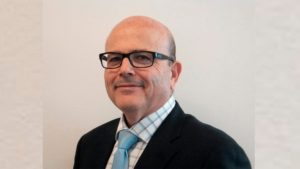
A Spanish economist and a former executive with Baxter Healthcare Inc. in the United States, Caballero was named the new prefect of the Vatican’s Secretariat for the Economy in November 2022, replacing his childhood friend, Father Juan Antonio Guerrero Alves, SJ.
Caballero thereby became the second layperson to head a Vatican department, after veteran Italian journalist Paolo Ruffini at the Dicastery for Communication.
Given the importance of Vatican finances to the pontiff’s overall reform campaign, Caballero occupies a key role in trying to bring those reforms in for a landing, in a moment in which the pope’s capacity to oversee those efforts personally is destined to be in decline.
Sister Raffaella Petrini
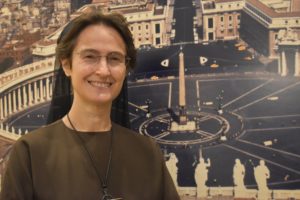
A Franciscan Sister of the Eucharist and a sociologist by training, Petrini, 55, is arguably the single most powerful woman in the Francis papacy. A former professor of economics and sociology at the Dominican-sponsored University of St. Thomas in Rome, she also has experience in the U.S. as a graduate of the Barney School of Business at the University of Hartford.
Quite obviously, she has the favor of the current pope. She was appointed in November 2021 as the secretary general, meaning the No. 2 position of the Vatican City State, making her by some order of magnitude the most powerful woman in the Vatican system.
Then, in July 2022, Francis made Petrini a member of the Dicastery for Bishops, and in October he also made her a member of the Administration of the Patrimony of the Apostolic See, which is basically the Vatican’s central bank.
In other words, Petrini is positioned to play a key role in what might arguably be called the three essential elements of the Francis reform: The administration of the Vatican, the appointment of bishops, and the management of the Vatican’s financial resources.
Cardinal Mauro Gambetti
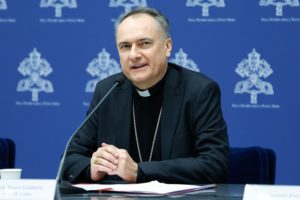
A member of the conventual Franciscans, Gambetti, 58, is inextricably associated with Assisi and the charism of St. Francis. Between 2013 and 2021, he was the general custodian of the Basilica of the Sacred Convent of St. Francis in Assisi, with responsibility for administering the various Franciscan sites in the city.
In October 2020, Pope Francis made Gambetti a cardinal, the first time since the 19th century that a member of the conventual Franciscans received the honor. At the time it was considered anomalous, since there was already a prelate in Assisi, Archbishop Domenico Sorrentino, who was now outranked by Gambetti.
In February 2021, Francis resolved the anomaly by naming Gambetti vicar general for the Vatican City State and also archpriest of the Basilica of St. Peter, and head of the administration of the basilica, effectively making him one of the Vatican officials with the most direct access to the pope.
In June 2023, Francis also named Gambetti a judge of the Court of Cassation, in effect the supreme court of the Vatican City State.
Archbishop Edgar Peña Parra
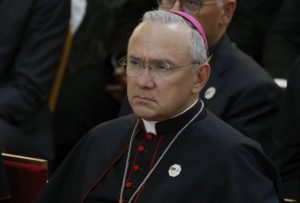
A 63-year-old Venezuelan, Peña Parra is the sostituto (“substitute”), in the Vatican’s Secretariat of State, making him effectively the pope’s chief of staff. He’s the second Latin American to hold the role, after Sandri.
In some ways, Peña Parra’s status under Francis was called into question by the part he played in the fiasco of the failed $400 million London property deal, which ended in convictions by a Vatican tribunal for nine defendants, including Peña Parra’s predecessor, Italian Cardinal Angelo Becciu.
On the other hand, Peña Parra remains in his position, and, as the pope ages and becomes increasingly reliant on others to carry the ball, the fact of serving as the sostituto by definition means that Peña Parra will become an increasingly influential fixture on the Vatican scene as time goes on.
